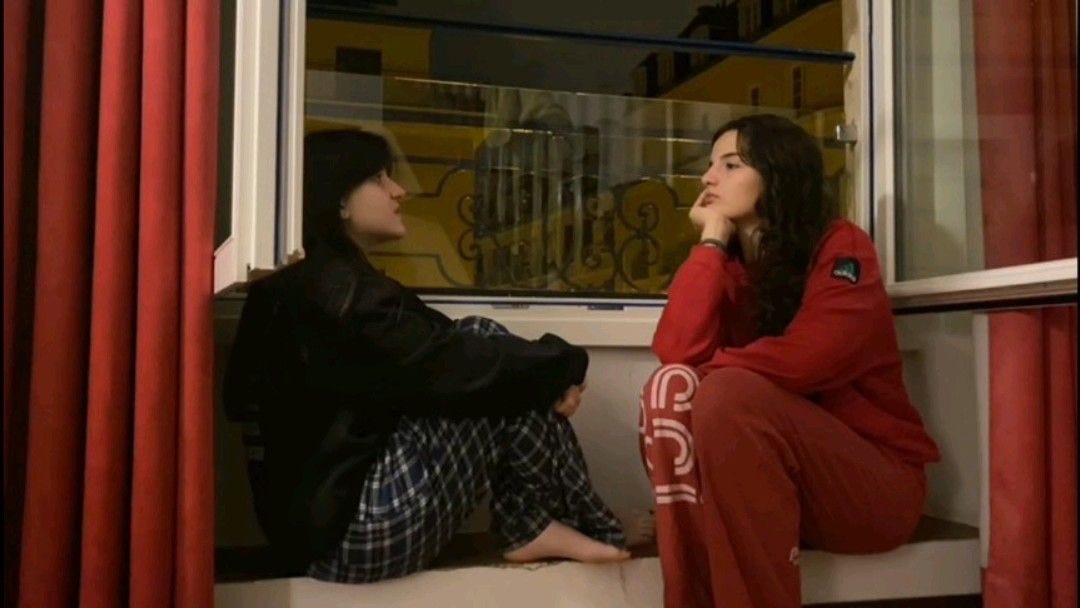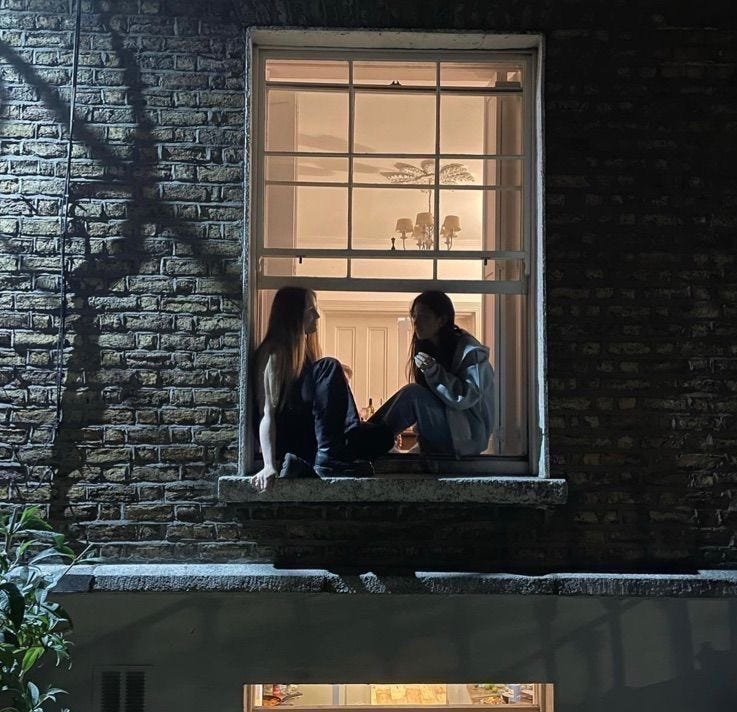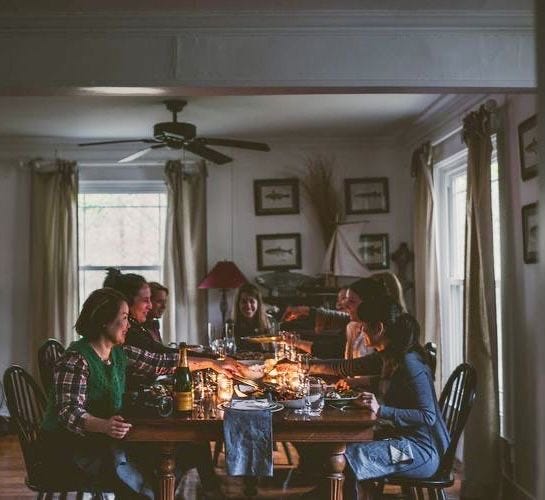i’ve lost count of the number of times i’ve walked away from a dinner or a party replaying the sound of my own voice, cringing at the things i let slip out. i realised i handed over before the other person had earned the weight of them. on the ride home, i always notice the same feeling in my chest: a sort of hollowness. oversharing doesn’t tether you to people the way you hope it will. it drains you, and leaves you with a version of yourself you didn’t actually mean to hand out.
the act itself often feels compulsive, almost physical. you hear yourself racing through stories you swore you wouldn’t mention. you catch your hands gesturing faster, your voice tilting louder, your body leaning in as though closeness can be willed into existence by sheer volume of detail. when the moment passes, you feel the exhaustion creep in — like you’ve been carrying bags that weren’t yours to carry, or playing a role that nobody asked you to audition for.
what makes oversharing so common is that it’s rarely just about words. it usually begins with a hunger. sometimes it’s loneliness — the subtle variety that lingers in crowded rooms, in group chats that scroll past you, in the spaces between questions that only scratch the surface. the hunger to be known is sharp, and in that sharpness it’s easy to believe that spilling your insides is the quickest way to be understood. so you fast-forward intimacy, offering details that belong to the third year of a friendship in the third hour of meeting someone.
other times, oversharing comes from nerves. silence in conversation can feel unbearable, as though a pause is proof of failure. instead of letting the moment breathe, you fill it, and fill it, until the words come out unfiltered. it’s less about truth than it is about panic management. anything to keep the air moving, to keep yourself from being the one who leaves the gap unspanned. later, when you’re alone, you realize you weren’t actually heard — you were just loud enough to cover the emptiness.
there’s the strange sense of control that oversharing provides. when life feels unsteady, narrating your story in full can feel like taking charge of it. you map out every detail, you lay it bare, and for a fleeting second it feels like you’re in command again. except what actually happens is that the weight shifts. now, instead of holding your own story, you’re managing the unease of having given it away to someone else.
the modern world has blurred the boundaries even further. social media has taught us that the currency of attention is confession. the caption that begins with “i don’t usually share this…” is practically a genre now. people post their heartbreak, their exhaustion, their private grief, dressed up in fonts and filters. it’s vulnerability turned into a product, intimacy packaged for an audience. when that’s the backdrop, it’s no wonder we forget where disclosure ends and performance begins. you learn to equate “being real” with “being open,” even if openness leaves you scraped raw instead of seen.
and yet, oversharing is not always a mistake. there are times when spilling too much leads to something real. i’ve had nights where i let a detail slip — one i thought would be too heavy — and instead of recoiling, the person across from me leaned closer. there’s a messy kind of magic in that, the moment when you realize your jagged edge lines up with someone else’s. it’s clumsy, but it’s also human. sometimes oversharing is less about collapse than about testing the ground, seeing if it will hold.
the trouble, though, is that oversharing doesn’t always choose the right audience. the person who nods politely might never think of your story again, but you’ll think of their silence for days. the friend who changes the subject leaves you with the sinking knowledge that you miscalculated. and the internet, which never forgets, will hold onto things you wish you could take back. the aftermath is what teaches you the difference between being open and being careless.
if you zoom out, oversharing is really about time. it’s a shortcut; an attempt to speed through the slow work of building trust, the mundane accumulation of small exchanges that actually knit people together. but trust doesn’t grow on fast-forward. intimacy takes the long route: remembering a detail from last week’s conversation, showing up when you said you would, letting someone witness you in your ordinary rather than your extreme. when you overshare, you get the spark but not the warmth.
the most frustrating part is that the urge itself isn’t wrong. wanting to be understood, wanting to collapse the distance between yourself and others, is not a flaw. it’s the method that backfires. there are better outlets for the flood: journaling until the storm clears, writing the message you don’t send, telling the story to the one friend who has already proven they can hold it. these are slower, less showy forms of honesty, but they do what oversharing never does — they leave you steadier afterward.
and so the work is not to clamp down on every impulse, but to pause long enough to notice it. to ask: is this the right person? is this the right time? will i feel lighter after this, or just emptier? those questions don’t always stop the words, but they can slow the flood.
what oversharing reveals, in the end, is that most of us are just aching to be less alone in our experience. we want proof that someone else has thought the thought we’ve carried in secret, that someone else has felt the jagged shape of the thing we can’t name. but the paradox is that the very act we use to seek closeness can leave us more disconnected. closeness is slower, quieter, less show-stopping. it’s in the way someone texts you back after three days without making you feel guilty. it’s in the way they remember what you said about your brother, or your dog, or the coffee order you didn’t think mattered.
oversharing is an attempt to leap straight into recognition. what we need instead is patience for the kind of intimacy that doesn’t flare up but builds, brick by brick. not everything has to be said all at once. the best conversations are the ones you get to return to, not the ones that leave you wishing you could swallow your words back whole.










somewhere between opening up to someone to be understood or feel more valued in their eyes, we blur the lines of our own truth.
I woke up today with my chest carved open in regret of things I said last night. I felt stupid for giving myself like that to people who really dont deserve it or frankly care.
Thank you for this post, it put into words everything I was feeling and even though I still feel the embarrasment, the guilt and honestly the shame in myself, I feel a little less lonely and a little more hopeful